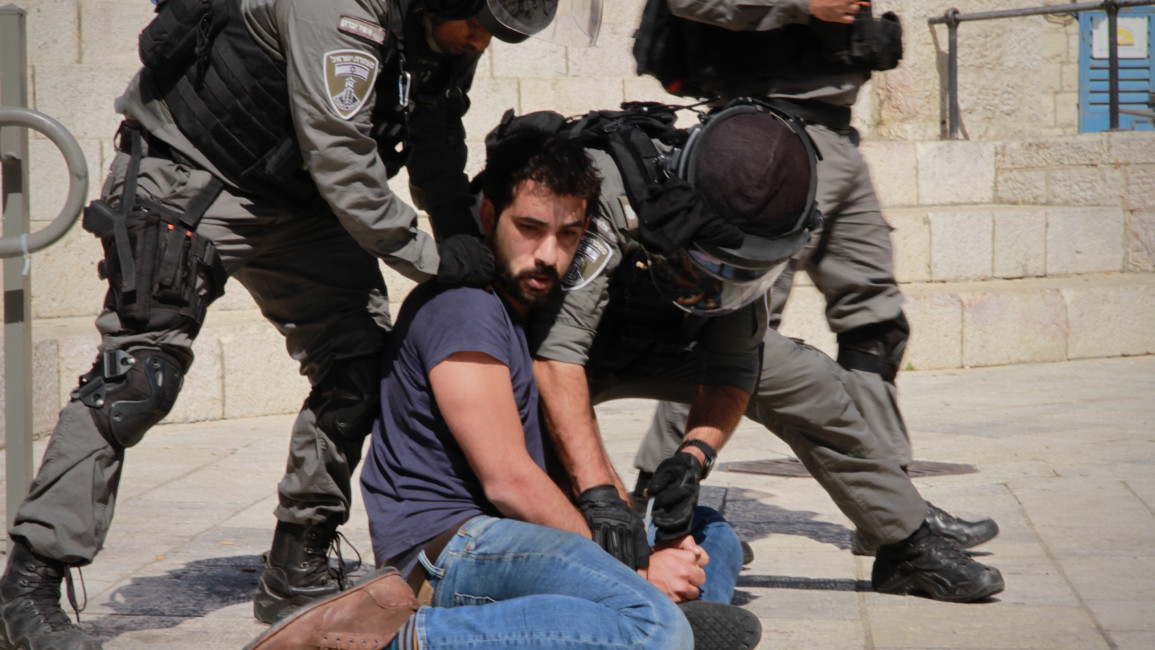Israel creating 'Guantanamo-like' conditions for Palestinian prisoners
The fate of hundreds of Palestinians abducted by the Israeli army from the Gaza Strip remains unclear as the Israeli military continues to deny humanitarian organisations access to detention camps amid recent reports of Palestinian detainees dying while in Israeli custody.
The reported Palestinian deaths elevated concerns over the systematic maltreatment of Palestinian prisoners by Israel.
"We were beaten and ordered to kneel for hours. We were left for three days in an open field in the cold. They tortured us. We were accused of being members of Hamas, that we're terrorists", said one former Palestinian detainee whom the Israeli army brought back to the Gaza Strip barefoot.
For its part, Amnesty International released a report on Wednesday, 20 December, urging authorities to "investigate inhumane treatment and enforced disappearance of Palestinian detainees from Gaza".
Amnesty's report comes just days after the United Nations Office of the High Commissioner for Human Rights (OHCHR) declared it had received "numerous disturbing reports" from northern Gaza "of mass detentions, ill-treatment and enforced disappearances of possibly thousands of Palestinians," including children.
More horrifying testimonies emerge from civilian Palestinian detainees from Gaza subjected to brutal forms of torture, starvation, & the degradation of human dignity. They were beaten with iron bars, had their heads stomped on, urinated upon, and left exposed outdoors for days. pic.twitter.com/ZFtifAMmfG
— Ramy Abdu| رامي عبده (@RamAbdu) December 19, 2023
The International Committee of the Red Cross (ICRC) has been unable to verify the conditions of thousands of Palestinian prisoners since 7 October after Israel suspended all visits.
ICRC spokeswoman Alyona Synenko suggested that Israel is violating international humanitarian law by denying humanitarian actors access to detention camps.
"The reports are very concerning. Palestinian detainees from the West Bank, East Jerusalem and Gaza are protected by international humanitarian law and the Geneva Convention. It's our role, according to IHL, to monitor their treatment and conditions, and unfortunately, we have been unable to do that since 7 October", Alyona Synenko told The New Arab.
Abduction of Journalist Diaa al-Khalout
The whereabouts and health of TNA's Arabic-language service correspondent in Gaza, Diaa al-Khalout, who was abducted by the Israeli army from Bait Lahia, Gaza Strip, on 7 December is still unknown.
The Israeli military remains tight-lipped about the conditions of all Palestinians detained in Gaza.
The Israeli rights group Hamoked told TNA, "We are trying to trace people from Gaza who have been detained, but so far, the military is refusing to provide us with any information."
"We will continue to submit individual requests for tracing Gazans – and we are preparing a petition to the Israeli High Court demanding that families receive this information", they added.
According to eyewitnesses, Diaa Al-Kahlout was taken along with his brothers, relatives, and other civilians from the market street in Beit Lahia, northern Gaza.
Al-Kahlout was among dozens of Gaza residents arrested by Israeli forces in Gaza and were forced to strip off their clothes and were searched and humiliated before they were taken to an unknown location, according to eyewitness reports.
Palestinian prisoners' rights advocacy, Addameer, stated that collected testimonies of recently released prisoners from the Ofer prison indicate that "terrible crimes" are being committed against individuals taken from Gaza by the Israeli army.
"In addition, we have fears that mass field executions took place", the statement added.
"Guantanamo-like" conditions
Since Israel's ground invasion of the Gaza Strip, hundreds of Gaza residents were abducted and sent to detention centres in the Naqab (Negev) desert and near Jerusalem, according to Haaretz. Women and juvenile detainees have also been taken to Israel and are being held at the Anatot base outside of Jerusalem.
Prisoners spend much of their day blindfolded and handcuffed, with the facility's lights switched on throughout the night.
Seventy-one Gazans have been brought before Israeli judges so far, and their detention has been extended.
At least six Palestinian prisoners have died since the outbreak of war, with at least two found with bruises all over their bodies.
The Geneva-based Euro-Med human rights monitor said that the conditions of Palestinian prisoners inside Israeli detention centres are "Guantanamo-like".
Meanwhile, members of the Israeli government, including Justice Minister Yariv Levin, are meeting on Tuesday to determine how to prosecute the detainees who were taken from Gaza by the Israeli army. According to Israeli media, Israel is considering establishing a special court to charge the Palestinian fighters to reveal to the world how Hamas operates, its intentions and funding sources.



